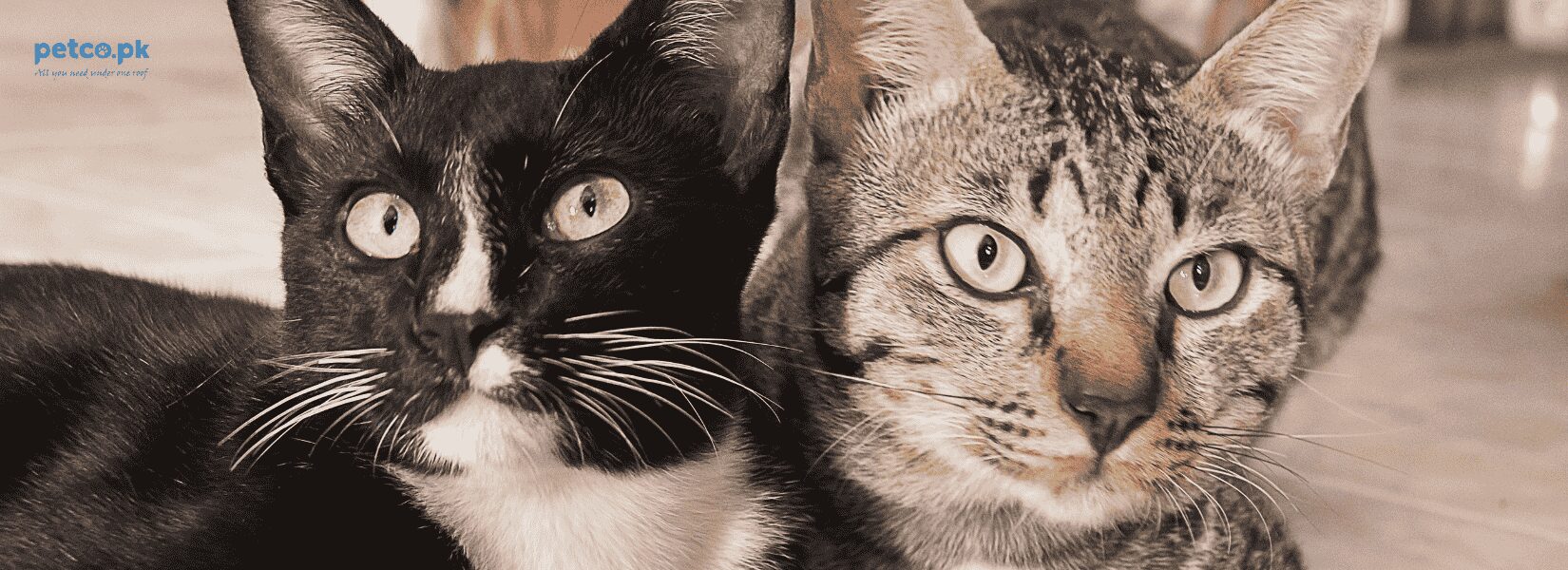Top Nutritional Tips for Your Cat at the Start of Winter

As the seasons change and colder weather sets in, our feline friends feel the shift just like we do. Cats may become less active, sleep more, and need extra care to stay healthy and warm. One key area that often gets overlooked is their nutrition. During winter, the proper diet plays a significant role in helping cats maintain energy levels, body heat, and overall well-being. At Petco.pk, we understand how important it is to support your kitten through every season. This article shares practical, expert-backed tips to ensure your feline stays well-fed, comfortable, and healthy throughout the cold months.
When temperatures fall, your feline is naturally going to struggle a lot to keep body temperatures up, and that is why correct nutrition would even be more critical. A proper diet will save your feline energy in winter, boost the immune system, and ensure that the coat is thick and shiny.
These pets might be a bit less active in colder months; nevertheless, their bodies require an appropriate combination of nutrients in order to remain strong and healthy. Protein-rich and healthy-fat foods can make a big difference. Even when your cat is not consuming much water, hydration is also essential.
Even minor changes in diet at this time of the year will lead to improved health and comfort. Considering the nutrition during the cold season can be a relatively small gesture, but a really strong one, as the feline will feel safe, warm, and well during the cold season.
Top Nutritional Tips for Your Cat at the Start of Winter
As winter begins, your cat’s nutritional needs may shift to adapt to the colder environment. A well-balanced diet supports warmth, immunity, and overall health during this seasonal change. Here are Key tips to help you give your cat the best possible nutritional care this cold season.
Increase Protein for Energy and Warmth
Protein will be essential in helping your feline to preserve heat in the body and also energy. Quality protein is necessary to increase the number of calories that your cat will have to burn to maintain its warmth. Choose foods that have either real meat or fish as the main ingredient. Diets high in protein keep muscles healthy and provide your kitten with the strength to remain active even during days when they become lazy due to winter.
Add Healthy Fats for a Warm Coat
Fats are a vast source of energy, and they maintain the health of the skin and the coat, making it thick and shiny on your feline. Fatty acids such as Omega-3 and Omega-6, usually contained in fish oil or flaxseed, are particularly beneficial. These vitamins help in insulation from cold and minimise dry, rough skin frequently occurring with cold weather.
Keep Your Cat Hydrated
It is necessary to drink a lot even during the cold season. When it is cold, cats can also consume less, particularly where their water supplies are outside, where they may be frozen. Stimulate increased water consumption: to drink fresh water as often as possible, wet cat food should also be considered, as it provides them with moisture. It can make a big difference to have a clean, easily accessible water bowl.
Adjust Portion Sizes Based on Activity
During winter, these pets are not as active, and thus, one should monitor their weight. One cat can require more energy in the form of food, and another can put on weight when overfed. Please pay attention to the behaviour of your feline and its physical shape, and provide the correct amount of food to avoid obesity without starving your pet.
Include Immune-Boosting Nutrients
Seasonal diseases are very common during the cold season, and your feline must have additional support for the immune system. Such nutrients as vitamins A, E and C, taurine and zinc contribute to a better defense. These are naturally present in some high-quality foods, or you can also approach your vet and ask them about safe supplements to give your cat to enhance his or her health during colder times of the year.
Senior Cats Need Special Nutrition in Winter: Here’s What to Know
Yes, they do so! The ageing feline has a body that is transformed, and when it is cold outside, some health problems worsen. Stiff joints, slowed-down digestion, and a decline in energy might be the problems of older felines. During the cold season, foods that have higher joint support are always rich in omega-3 and digestible proteins. Having regular feeding and slightly warmed food may help too.
The correct diet will enable a better comfort and wellbeing of your senior feline during colder months, so minor adjustments today can save a lot of problems later. There is no general right plan that fits all felines in the cold season. Always refer to your vet to get the best care for your ageing friend.
Significant Signs Your Cat’s Winter Diet May Not Be Working
Find some changes in the body or behaviour of your feline? It can be the winter diet. Sudden weight gain or loss, dry flaky skin, dull coat, low energy, or an upset stomach. Alterations of stool or appetite can also be an indicator that the food you are currently feeding your cat fails to meet its seasonal demands.
The little signs can be a sign of bigger problems, particularly with colder weather, where digestion and activity change. When you spot something out of the ordinary, do not hesitate; instead, consult your vet. It may only be a change in diet that carries your feline back to where it feels much better.
Total Frequency to Recheck Your Cat’s Winter Diet
The change of the season, especially in the cold season, may bring about slight changes in the health of your feline. As a result, you should go for frequent visits to keep a check on their health. You can consider checking their diet once with your vet throughout the season.
Weigh your feline at intervals and monitor any developments in the coat, intake of foods, activity levels and bowel habits. These may be just the symptoms that something has to go wrong. A balanced diet can use minor adjustments to remain efficient even in the cold months.
Staying active helps keep your feline healthy, warm, and comfortable throughout the cold season, particularly in the case of older ones and/or those with any health issues.
Conclusion
Winter nutrition is key to keeping your kitten healthy, happy, and full of energy during the colder months. At Petco.pk, every feline deserves care that matches their unique needs. Before making any significant changes to your cat’s diet, it’s always best to talk to your vet. Regular check-ups and staying alert to any changes in behaviour or appetite can make a big difference. With the proper support, your cat can thrive all cold season long.
Frequently Asked Questions
Do cats eat more in the winter?
Yes, many felines tend to eat more during colder months, especially if they’re more active or exposed to the cold. Outdoor ones burn more energy staying warm, while indoor cats might overeat due to boredom. Monitor their overall weight and adjust portions accordingly.
Should I feed my cat more calories during winter?
Not necessarily. It depends on the activity level, age, and whether they’re indoors or outdoors. Consult your vet before making significant changes. Overfeeding can lead to weight gain and health issues.
Can I give them warm food in the winter?
Yes! Slightly warming up wet food (not hot) can enhance aroma and appeal, especially for picky eaters. It can also provide added comfort on cold days.
What are the best foods for my cat’s skin and coat in the cold season?
Look for foods rich in Omega-3 and Omega-6 fatty acids, such as salmon oil, flaxseed oil, or specially formulated skin-support cat food. This helps prevent dryness and itching.
Related Articles
Pet Grooming Services in Pakistan
Pet grooming refers to the act of caring for the appearance and cleanliness of a pet’s coat, skin, nails, and other physical features. It typically
Best Home-made Foods Which You Can Feed Your Cats
You can feed homemade foods to cats. However, it is important to do your research and make sure that the homemade meals you are feeding
The Best Cat Types in Pakistan
There are many best cat types in Pakistan available to adopt, and it is difficult to say which are the best. Some popular best cat
